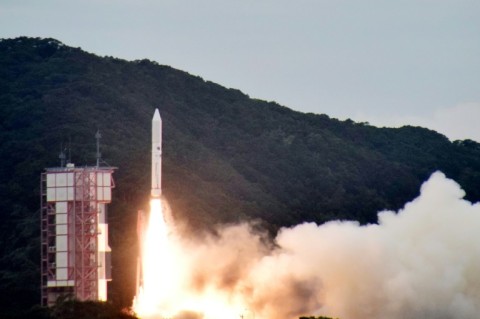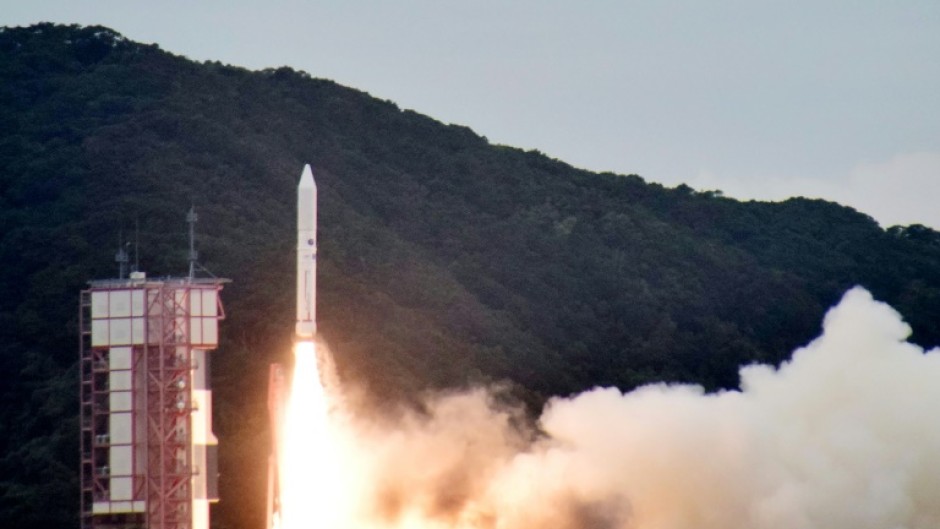
TOKYO - Japan's space agency said it sent a self-destruct order to its Epsilon rocket after a failed launch on Wednesday because of a problem that meant the craft could not safely fly.
The unmanned rocket, on its sixth mission, was taking satellites into orbit to demonstrate "innovative" technologies.
"The rocket can't continue a safe flight, because of the danger it would create if it falls on the ground," a JAXA official said in televised comments.
"So we took measures to avoid such an incident, and we sent the signal (to destroy the rocket)," he said, adding that information on the cause of the issue was not immediately available.
It was Japan's first failed rocket launch since 2003, and public broadcaster NHK said the self-destruct order was issued around 10 minutes after liftoff.
A JAXA livestream of the launch from Uchinoura Space Center in southern Japan's Kagoshima was interrupted and presenters said there had been a problem, without giving details.
The solid-fuel Epsilon rocket has been in use since 2013.
It is smaller than the country's previous liquid-fuelled model, and a successor to the solid-fuel "M-5" rocket that was retired in 2006 due to its high cost.
JAXA describes Epsilon as "a solid-fuel rocket designed to lower the threshold to space... and usher in an age in which everyone can make active use of space".
A box-shaped satellite carried by the rocket, called RAISE-3, had been due to orbit the Earth for at least a year, according to a JAXA fact sheet about the mission that was named "Innovative Satellite Technology Demonstration-3".
Universities, research institutions and companies had been invited to engineer new technologies to try out on RAISE-3.
They ranged from Tokyo Metropolitan University's "pulsed-plasma thruster" to an experiment in "harvesting energy with (a) lightweight integrated origami structure".
As well as RAISE-3, eight microsatellites were also being launched by the Epsilon rocket, the fact sheet said.
Japan's last failed space rocket take-off was in 2003, when the country aborted the launch of a pair of spy satellites to monitor North Korea.

